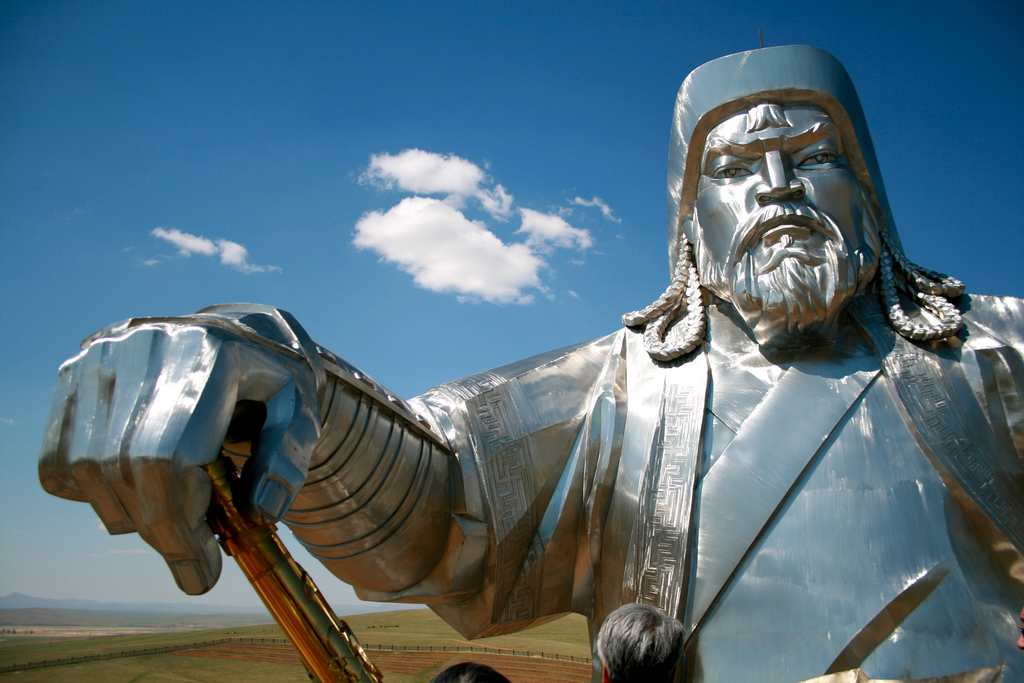Views expressed in opinion columns are the author’s own.
Oftentimes, our leaders embody much of what we hate about society. They cheat and pander their way to the top. They engage in illicit behaviors. President Trump has his own faults, demonstrating misogynistic and bullying tendencies and a startling refusal to acknowledge any wrongdoing.
Great leaders are often heralded for their effectiveness and risk taking. While these traits allow leaders to ascend in the public sphere, they often indicate a volatile personality. The same audacity and charisma leaders employ to reach great heights also amplify their propensity to stumble upon the traps of fame and fortune. However, these leaders’ transgressions do not prohibit them from effectively performing their duties to their constituents.
History contains many examples of esteemed men whose actions enhanced the lives of their people and resulted in destruction for their enemies. Alexander the Great opened up trade between Europe, Africa and Asia and spread the great teachings of Greek culture to the people he vanquished. While Genghis Khan was ruthless, he advanced religious tolerance. Their actions reflected the times they lived in: Only the most brutal leaders remained in power. As Alexander the Great said, “I am not afraid of an army of lions led by a sheep; I am afraid of an army of sheep led by a lion.” To create influential and positive change, these leaders conquered land and forced people to submit to their regimes, at the expense of many peasants’ lives.
Thanks to the Enlightenment and the global turn toward democracy in recent centuries, warlord leaders are far less prevalent in modern times. As Mahatma Gandhi mused, “I suppose leadership at one time meant muscles, but today it means getting along with people.” Consequently, our leaders’ actions in the recent past fare well historically, as they reflect the greater trend of a less violent civilization. They still have their own failings. Martin Luther King Jr. and John F. Kennedy both committed adultery while aspiring to change the world. Thomas Jefferson owned slaves while he wrote in the Declaration of Independence that all men are created equal. Even Gandhi, ostensibly the epitome of morality, controversially tested his self-control by bringing naked young women into his bed. But Kennedy and King’s affairs don’t detract from their accomplishments, nor do they devalue the lives of all those who benefited from their greatness.
We as a society enjoy placing our leaders upon lofty pedestals, expecting them not only to heed our interests, but also to lead unblemished personal lives. While it is not ideal for our leaders to stray from accepted moral standards, their positive contributions to the citizens for whom they are responsible should be the only criteria we use to evaluate their leadership. We are not so far removed from the days when leaders resorted to extreme displays of military power to enact change. Therefore, we should cherish our gift of living in a time and place where we are afforded the right to dissect the trivialities of our leaders’ private lives.
In recent times, we have derailed many politicians’ careers for sexual or moral misconduct. From Anthony Weiner to Bill Clinton, Gary Hart to John Edwards, we have exhibited an intolerance for our leaders’ personal failings. While Trump surmounted this tendency, we vilify him for similar misdeeds. In so doing, we allow him to hide behind distractions while he enacts executive orders and policy changes to his heart’s content. By focusing on his policies, and not succumbing to the temptation of ridiculing him for his personal flaws, we can force him to adhere to our desires and lead the country in a manner of which we approve. By acting this way toward all our leaders, we will benefit as a society, as leaders will overcome their human fallacies for the progress of their constituents.
Joseph Kuttler is a freshman English major. He can be reached at Jkuttler@umd.edu.



